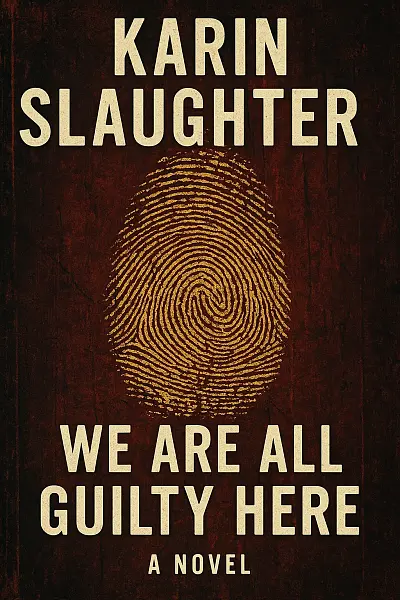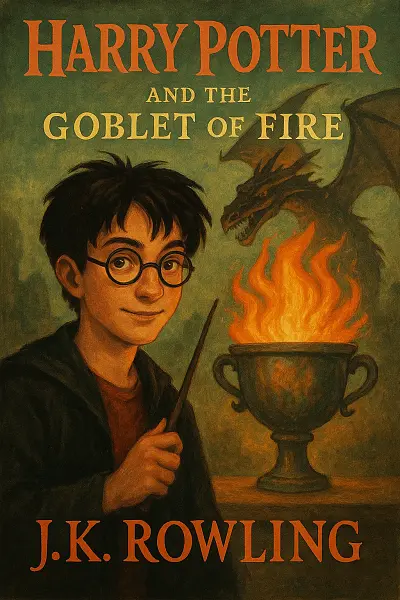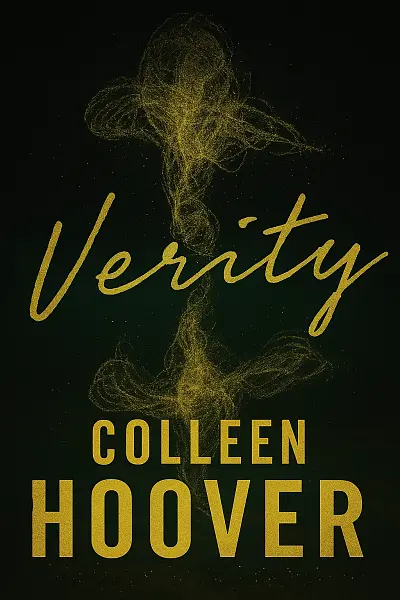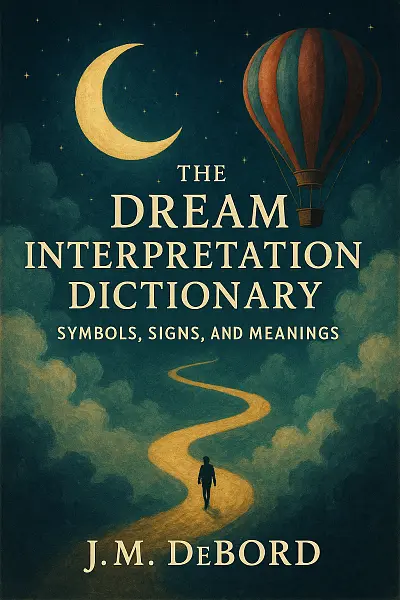
We Are All Guilty Here
by: Karin Slaughter
Officer Emmy Clifton thinks she knows everyone in North Falls, a quaint town where secrets hide in plain sight—until the night two teenage girls vanish after the fireworks. Their disappearance shakes the community, but it's personal for Emmy; she’d overlooked her best friend’s daughter’s silent plea for help. Now, fueled by guilt, Emmy dives into the tangled web of clues the girls left behind, discovering no one really knew them—or what they were hiding.
The small-town calm crumbles into suspicion and fear. Emmy must unravel layers of lies as she wonders: just how far will someone go to protect the truth?
"Sometimes, the truths we bury gather more weight than the secrets we confess."
Let's Break This Down
The Author's Voice
Atmosphere
Darkly immersive, tense, and unflinching—Karin Slaughter crafts a world that’s both viscerally real and emotionally charged. The mood is thick with suspense and moral ambiguity; every chapter practically hums with paranoia and raw vulnerability. Readers can expect a steady undercurrent of dread, amplified by gritty, small-town settings where secrets never stay buried. The emotional stakes feel high, and there’s an urgency to every conversation and glance; the environment itself seems complicit in the unfolding drama.
Prose Style
Slaughter’s prose is razor-sharp and unsentimental. She balances gritty, graphic detail with moments of deeply personal introspection. Dialogue crackles with authenticity, and her descriptions often land with a punch, pulling readers straight into the action or the quiet terror of a private moment. There’s little excess or flowery language—instead, the writing is blunt, evocative, and purposeful, grounding intense scenes in emotional honesty. Expect a no-nonsense, straight-to-the-gut delivery, with occasional flashes of dark humor that break the tension just enough.
Pacing
Relentless and propulsive, the story rarely lingers. Slaughter knows exactly when to tighten the screws—scenes often cut sharply from one to the next, keeping readers on their toes and eager to turn the page. Backstory and exposition are parceled out sparingly, always in service of forward momentum. Still, she’s careful not to sacrifice character depth for speed; pivotal moments are given room to breathe, so emotional beats land with impact. It’s gripping without feeling rushed, expertly walking the line between slow-burning suspense and full-throttle plot advancement.
Overall Rhythm & Feel
Reading We Are All Guilty Here is like stepping onto a speeding train—you’re instantly swept into a morally complex, emotionally turbulent journey. The tightly coiled tension, crisp narrative focus, and bracing honesty in the storytelling make for an addictive, nerve-jangling experience. Fans of dark thrillers and character-driven crime will feel right at home; this is a story where every word, every moment, counts.
Key Moments
- Small-town secrets explode in a midnight confession booth
- Messy, flawed heroines: you’ll root for them (even as you cringe at their choices)
- Page 137: One text message—and suddenly everyone’s masks are off
- Slaughter’s signature grit: raw, unflinching dialogue that cuts right to the bone
- That gut-punch reveal about the sheriff’s past? Still not over it
- Quiet betrayals ripple through every relationship—no one’s really innocent here
- Redemption isn’t easy...or guaranteed. But hope still flickers in the darkest corners
Plot Summary
We Are All Guilty Here by Karin Slaughter hooks readers right from the start with a mysterious small-town murder. The novel kicks off as Alice Montgomery, a young prosecutor, returns to her rural Georgian hometown after her mother’s suspicious death. Alice digs into old family secrets while investigating a string of recent crimes that seem connected to both her late mother and the influential Harlan family. Midway, a shocking twist reveals that Alice’s childhood friend, Ben, was coerced into covering up the initial crime. The tension peaks as Alice confronts both Ben and the Harlans, leading to a tragic confrontation where justice is neither clean nor complete—culminating in Alice exposing the town’s dark underbelly but realizing justice comes at a personal cost.
Character Analysis
Alice, the central protagonist, evolves from a by-the-book legal worker into a morally conflicted truth-seeker, propelled by her dual desire for justice and personal closure. Ben, cast as both ally and adversary, is driven by guilt and loyalty; his arc shifts as he confronts the consequences of his actions and decides to help Alice expose the truth, at great risk to himself. The Harlan family serves as the story’s corrupt power brokers, embodying generational privilege and moral rot; their nuanced villainy offers more than simple antagonism, presenting them as products and perpetuators of a broken system. As secrets unravel, most characters wrestle with guilt—forcing them to question where personal responsibility ends and communal complicity begins.
Major Themes
Guilt and complicity shape the emotional landscape, as nearly every character must confront their role in perpetuating local injustices—most notably with Ben’s silent cover-up and Alice’s unwillingness to see her family’s flaws. The abuse of power permeates the narrative, as the Harlans manipulate legal, social, and economic levers to evade consequences. The theme of truth versus protection is ever-present: characters struggle between exposing ugly realities and preserving the fragile safety of their community. Through Alice’s journey, the novel also asks whether personal sacrifice is ever enough to challenge systemic wrongs.
Literary Techniques & Style
Slaughter’s signature brisk, vivid prose combines sharp dialogue with atmospheric paranoia, inviting readers into both Alice’s psychology and the town’s stifling secrets. The story is told in a tight third-person limited perspective—this allows for suspense as information is strategically withheld, ramping up tension before reveals. Symbolism—like Alice’s recurring childhood nightmares—mirrors her growing realization that childhood innocence shielded her from hard truths. Slaughter’s deft use of metaphors (the town as a “festering wound”) intensifies the mood and highlights themes of corruption and decay.
Historical/Cultural Context
Set in present-day rural Georgia, the story reflects contemporary anxieties about justice, corruption, and small-town secrecy, influenced by ongoing discussions of institutional abuse and rural identity in Southern America. The social backdrop—old money families, racial tensions, and the slow pace of change—grounds the story in both a specific location and a wider cultural conversation about accountability.
Critical Significance & Impact
We Are All Guilty Here stands out for its unflinching moral ambiguity and willingness to implicate every character (and by extension, the reader) in cycles of guilt and complicity. The book has sparked lively discussion for its timely critique of privilege and power, earning praise for complex characters and expertly sustained suspense. Its lasting value lies in how it interrogates the very idea of justice—resonating with readers eager to question easy answers.

Secrets unravel in a town where everyone has something to hide.
What Readers Are Saying
Right for You If
If you love twisty thrillers with dark secrets, complicated characters, and the kind of suspense that keeps you glued to the page way past your bedtime, We Are All Guilty Here is absolutely your jam. Honestly, Karin Slaughter is kind of a must-read if you like anything in the psychological thriller or crime fiction realm. If you’re the sort of person who loves unraveling small-town mysteries with a heavy side of emotional drama, prepare to get totally sucked in.
- Die-hard thriller fans—especially if you like your stories gritty and don’t mind a bit of violence or tough topics—this one’s for you
- If you dig books with morally gray characters and messy, believable relationships, you’ll feel right at home
- People who like complicated female leads and stories where everyone’s motives are a little questionable (or straight-up shady) are really going to eat this up
- Anyone who’s finished a Slaughter book and immediately needed a debrief will definitely want to add this to their list
But—real talk—this isn’t for everyone. If you prefer your mysteries on the lighter, cozier side (think Agatha Christie or The Thursday Murder Club vibes), you might find this one a bit too dark or intense. Also, if you’re not into graphic scenes, tough subject matter, or flawed characters making questionable choices, you might want to skip it.
Basically: If you crave an edge-of-your-seat, emotionally messy thriller, dive in! But if you’d rather hang out somewhere a little more forgiving and gentle, maybe save this for another day.
What You're Getting Into
Buckle up for a dark, twisty ride— We Are All Guilty Here by Karin Slaughter drops you into a seemingly idyllic small town where old secrets simmer just beneath the surface.
When a tragedy rocks the close-knit community, a determined outsider teams up with a haunted local to dig up answers, unraveling hidden connections and exposing the lies everyone would rather keep buried.
Brimming with tension and page-turning suspense, this thriller pulls you deep into a web of suspicion, guilt, and the desperate search for justice—leaving you guessing who, if anyone, is truly innocent.
Characters You'll Meet
-
Emma Foster: The determined protagonist whose relentless search for truth about her brother’s death pulls her back to her hometown. Driven by guilt and unresolved trauma, she propels the investigation forward.
-
Noah Foster: Emma’s troubled younger brother whose mysterious death serves as the catalyst for the story. His secrets and relationships unravel throughout the plot, affecting everyone around him.
-
Detective Leah Monroe: A seasoned detective with a sharp instinct for justice who assists Emma. Her experience and empathy help guide the investigation, though she wrestles with her own personal and professional challenges.
-
Alex Tanner: Emma’s childhood friend, now a local journalist, who becomes her confidant and ally. His loyalty is tested as old secrets and hidden truths emerge.
-
Marjorie Foster: Emma and Noah’s mother who struggles with her own grief and denial. Her actions and choices deeply influence Emma’s understanding of the past.
More Like This
If Gone Girl by Gillian Flynn kept you feverishly flipping pages, you’ll find similar adrenaline in We Are All Guilty Here—the razor-sharp twists and the chilling unraveling of secrets feel like kindred spirits, both diving deep into the shadows behind everyday façades. For fans of Paula Hawkins’ The Girl on the Train, Karin Slaughter’s gripping narrative offers that same unreliable tension and complex emotional web, pulling you relentlessly through a story where no one is quite what they seem and everyone is hiding something.
On screen, the atmosphere and moral ambiguity might remind you of the critically acclaimed series Sharp Objects. There’s a shared intensity in the way both Slaughter’s novel and the show peel away layers of character and town alike, revealing rot beneath the surface charm. From prickly protagonists to haunting small-town secrets, these stories linger with you long after the final chapter or episode, making We Are All Guilty Here a standout for anyone drawn to psychological suspense with real emotional grit.
Critic's Corner
What does a town owe its secrets, and what happens when those secrets ignite instead of protect?
We Are All Guilty Here by Karin Slaughter flings readers headlong into these murky moral waters, daring us to confront the illusion of safety that small towns promise. As the dark underbelly of North Falls is exposed after two girls disappear, Slaughter draws a chilling portrait of collective denial—forcing us to question not just who is guilty, but what it means to truly see one another.
Slaughter flexes her considerable craft here, weaving propulsive chapters with characteristic precision. The narrative voice—rooted in Officer Emmy Clifton’s perspective—burrows into the psychological heart of the town, blending third-person immediacy with sly, almost confessional asides. The prose is taut yet atmospheric, mixing plainspoken dialogue with vivid sensory touches: summer sweat, fireworks smoke, the bite of guilt. Slaughter skillfully alternates pacing, using brief chapters as narrative detonators, while slowing down for emotional reckoning at crucial moments. The dialogue crackles with authenticity, especially among the teens, rarely lapsing into cliché. Her restraint with violent details, favoring implication over graphic depiction, heightens suspense without numbing the reader. Yet, at times, the writing leans a bit hard on familiar small-town tropes, occasionally sacrificing originality for mood.
The heartbeat of the novel lies in its exploration of culpability and the dangerous allure of collective silence. Slaughter probes the messy intersections of parenthood, adolescence, and community responsibility, refusing sentimental resolution: What does justice mean in a place built on buried pain? The psychological realism of Emmy’s guilt—her personal blind spots, the agony of missed warnings—mirrors the failures of North Falls itself, making the novel feel uncannily timely in an era of communal trauma and fractured trust. Themes of complicity, the fraught nature of belonging, and the destructive power of secrets are threaded elegantly throughout. The teenagers’ hidden lives offer pointed commentary on generational divides, echoing current debates over privacy, surveillance, and the unseen burdens kids carry. Though the novel occasionally bites off more thematic weight than it can fully digest, its ambition is undeniable, and its questions linger long after the final page.
Placed alongside Slaughter’s earlier standalones and her acclaimed Will Trent series, We Are All Guilty Here marks an intriguing shift: less procedural, more meditative. Fans will recognize her deft plotting and moral ambiguity, yet the novel’s focus on communal rather than individual darkness recalls works like Gillian Flynn’s Dark Places and Megan Abbott’s suburban noirs. Within the crowded landscape of modern mysteries, Slaughter brings a fresh urgency to the genre—the sense that these crimes matter not just as puzzles, but as ruptures in the social fabric.
While the plotting occasionally favors atmosphere over tight coherence, and the ensemble cast sometimes blurs at the edges, Slaughter’s evocative writing and thematic ambition make this a standout small-town thriller. We Are All Guilty Here is a haunting exploration of responsibility that refuses easy answers—Slaughter fans and newcomers alike should dive in, prepared to be unsettled but unable to look away.
Community Thoughts
I wasn’t ready for that twist with Lena. Seriously, the second her motives got murky, I lost track of time rereading every clue. Slaughter’s mind games ruined my sleep, but I couldn’t look away.
i can't stop thinking about that moment when the truth snapped into focus and suddenly every character felt like a stranger. karin slaughter twisted my brain into knots with this one. absolutely haunted by that reveal.
I did NOT expect to be haunted by Mrs. Corwin’s icy stare for days after finishing. Every time she entered a scene, I got chills. Slaughter really knows how to etch a character into your nightmares.
I finished this book at 2 a.m. because I literally could not put it down. Karin Slaughter completely wrecked my sleep schedule with that ending. How am I supposed to act normal after THAT twist?
Okay, so I stayed up until 3 a.m. because of this book. Slaughter’s plot twists snuck into my dreams. Couldn’t stop replaying that scene with the shattered glass. My sleep schedule is officially ruined. Worth it? Absolutely.
Leave Your Review
Local Take
Why It Matters
Absolutely! Here’s how We Are All Guilty Here by Karin Slaughter resonates in the U.S. cultural context:
Wow, does Slaughter tap into the American psyche!
- The novel’s exploration of systemic justice, personal accountability, and social polarization echoes big historical moments—think Civil Rights Movement, #MeToo, or even recent reckonings with institutional failures.
- Americans value individualism and moral courage, so the characters’ struggles with loyalty versus truth hit extra hard. Secrets and betrayals here feel super “close to home” in a country obsessed with transparency, yet constantly facing political and ethical scandals.
- Some plot points—like whistleblowing or exposing corruption—cause a stronger emotional punch for U.S. readers who’ve lived through similar real-life dramas splashed across the news.
- The novel aligns with local traditions of gritty crime noir and thrillers but flips expectations by weaving in social critique, reminiscent of writers like Gillian Flynn or Attica Locke.
Either way, Slaughter’s storytelling style fits right in—intense, twisty, and deeply invested in asking: who’s really to blame here?
Food for Thought
Notable Achievement:
We Are All Guilty Here by Karin Slaughter quickly landed on multiple bestseller lists following release, drawing major buzz for its unflinching look at social justice and complex characters. That surge in popularity sparked lively discussions in book clubs and on social media, cementing Slaughter’s reputation as a master of modern thriller fiction.
Like what you see? Share it with other readers







